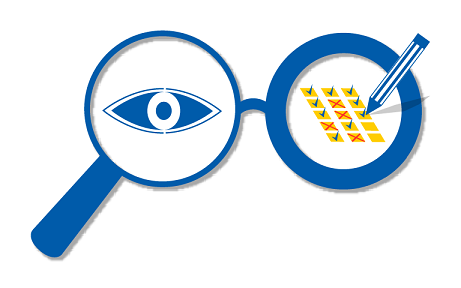What about learners that fall through the cracks?
The Department of Basic Education (DBE) promulgated a policy on home education that attempts to monitor home learners by requiring them to be regularly assessed by competent assessors. Assessment results must be evaluated by the DBE to take remedial actions when results do not meet minimum requirements. The stated intention of this monitoring is to avoid that home learners fall through the cracks.
Although the stated intention seems noble, closer examination reveals that there are no grounds to believe that the proposed monitoring will achieve the stated intention. The only thing that can be said with certainty is that monitoring will have a negative financial impact on parents and taxpayers.
What does monitoring mean?
In the school system, the CAPS curriculum requires that learners are monitored through regular assessments that measure whether a learner has achieved certain state prescribed academic outcomes. Although the draft bill and policy do not provide detailed definitions of monitoring, it can be safely assumed that the monitoring of home learners will also be based on CAPS, because this allows a re-use of the assessments developed for schools and makes the assessment results for schools and home learners comparable.
Impact of monitoring
CAPS assessments were designed for a school environment, and do not work efficiently in an home education environment. In a school, a teacher can hand out a test and collect the completed test papers within less than an hour. To do the same in a distance education environment is a much more laborious and time consuming process. Especially if invigilators are required.
Parents will be expected to pay for these assessments and taxpayers will have to pay for the bureaucracy required to evaluate assessment results, detect learners that do not meet minimum requirements, and then take remedial actions. Monitoring can therefore place a significant financial burden on both homeschooling families and taxpayers.
What does is mean to fall through the cracks?
There can be many definitions of what constitutes falling through the cracks. One definition could be that it means that a child was unable to obtain a matric. Obtaining a matric is easy to measure and is also an important educational milestone that provides access to further education and employment in the formal sector.
In school education the "real" matric pass rate (learners that pass matric as % of those that enter the school system) is estimated at about 37%. This means that 63% of learners that enter the school system fall through the cracks. Therefore, the majority of learners that enter the school system fall through the cracks, despite the high degree of monitoring.
Another definition could be based on the tests that are being used in international surveys to measure literacy and numeracy such as the PIRLS and TIMMS surveys. According to these surveys, the scores of South African learners are among the lowest in the world. Since the majority of learners in South Africa are in the school system, this confirms that the majority of learners in the school system fall through the cracks, despite being monitored.
A further definition of falling through the cracks could be that it means not being admitted to university. Of all the school learners that pass matric, only about 20% is admitted to university. This means that the majority of learners that were monitored for twelve years and passed the assessments fall through the cracks.
Since a matric does not mean that a learner is ready for university, universities have developed their own benchmark tests to measure readiness. The mere existence of benchmark tests therefore confirms that matric does not serve a purpose to measure readiness for university.
Going further, one can define falling through the cracks meaning to drop out after the first year of university. Since more than 50% of students drop out after their first year, this means that even the best matrics that are admitted to university still fall through the cracks.
Regardless of how falling through the cracks is defined, it does not seem that monitoring in the school system contributes to avoiding this. If monitoring does not contribute anything to avoid that learners in schools fall through the cracks, there is no reason to believe that it will have any effect on home learners.
What to do with learners that fall through the cracks?
The purpose of monitoring is to identify learners that have fallen through the cracks and then take steps to remedy the situation.
In a school environment, the remedy that is applied is to have the learner repeat a grade. Depending on the reasons for the under performance of the learner, this remedy sometimes helps. However, the progression policy of the DBE limits the use of this remedy by only allowing one repeat per phase. This has the consequence that a learner can progress up to grade 12 without passing a single assessment. Therefore, monitoring in the school system serves almost no purpose.
The situation in schools is often described in terms of a broomstick. If one places a broomstick in a classroom, this broomstick will eventually progress to grade 12 without passing any assessments. Since the broomstick cannot pass the external exam, the broomstick will then drop out of the school system and join the 67% of dropouts.
One of the biggest benefits of home education is that learners can progress at their own natural pace. In home education, a learner can be in different grades for different subjects at a certain point in time. If a learner is assessed according to his or her age, the outcome will be that the learner is ahead on some subjects and behind on other subjects. These outcomes can merely be noted, because the remedy of repeating a grade serves no purpose in an environment where children progress at their own pace. Monitoring serves even less of a purpose in the situation where families follow a curriculum or educational approach that differs from CAPS.
Is the state really concerned about those that fall through the cracks?
If the state claims to be concerned about learners that fall through the cracks, one would expect that the actions of the DBE is a testimony of this genuine concern. Unfortunately many actions seem to indicate that the opposite is closer to the truth.
- The progression policy limits the means at the disposal of schools to remedy the situation of learners that fell through the cracks.
- Until 2008, anybody could come in off the street and write matric. If you passed you got the certificate. If you studied on your own (as many did) you could get a matric for about R1000 books included. However, the minister implemented NSC regulations that will only allow full time students at registered schools or distance learning institutions for Grade 10, 11 and 12 to write the matric examination. The time and costs associated with this has left millions of learners that dropped out of school without any hope to ever get a matric.
- In order to help those that dropped out of school, the minister promised the introduction of an adult matric in 2008, but after 10 years, this promise still has not realized.
- In the absence of an South African adult matric, many school drop outs used the American adult matric, the GED, to get access to tertiary education. However, in 2018, Universities South Africa (USAf) announced measures to hinder this avenue for South African citizens.
The testimony of these actions of the DBE and USAf over the last decade indicates that there is no genuine concern for learners that fall through the cracks.
Conclusion
The DBE has promulgated a policy which introduces the monitoring of home learners, with the stated intention to avoid home learners falling through the cracks. Closer examination however shows that there is no reason to believe that monitoring will achieve this stated intention. It will only have a significant financial impact on homeschooling parents and the taxpayer.
Despite several avalanches of letters from homeschooling parents, the DBE has to date shown no willingness to listen to concerns of the home education movement about the policy. The reaction of the DBE was to label homeschooling parents as spammers and sent an email to homeschoolers to inform them that all communication on the policy on home education is terminated.
South Africa is hamstrung by a deaf DBE that constantly introduces new law and policy that impoverishes citizens, while more and more learners fall through the cracks and join the ranks of the unemployable.

Legal & Research
Centres
Homeschool ABC
Support
Curriculums
Impaq: Homeschool & Online ...
Impaq: The leading homeschooling curriculum provider in South ...
LEARNING TO READ EASY WITH THE ...
Parents and educators – these popular reading books are ...
Learn, code and create with Ubbu
Introducing ubbu!An Adventure of Code and Play! Learn, Code ...
Has no content to show!

































Comments